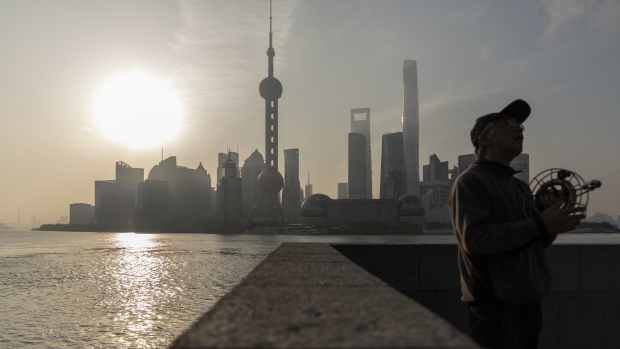
China starts inspection on financial regulators, state banks
BNN Bloomberg
China is inspecting the nation’s financial regulators, biggest state-run banks, insurers and bad-debt managers for the first time in six years to root out corruption in its US$54 trillion financial system.
China is inspecting the nation’s financial regulators, biggest state-run banks, insurers and bad-debt managers for the first time in six years to root out corruption in its US$54 trillion financial system.
A team led by the Central Commission for Discipline Inspection will start a two-month anti-graft check of the China Banking and Insurance Regulatory Commission, and accept complaint reports from whistleblowers until Dec. 15, according to a statement late Monday.
CBIRC Chairman Guo Shuqing said the move is a reflection of the Communist Party’s focus on financial regulation and told his staff that cooperation with inspectors will be their top priority for now.
The banking regulator is among the 25 financial organizations being scrutinized in the eighth round of checks by the ruling Communist Party since 2017. While previous tours covered other central and local government agencies and state-owned companies, the latest zeros in on entities including the People’s Bank of China, the China Securities Regulatory Commission, the Shanghai and Shenzhen stock exchanges, the biggest state-owned banks, as well as bad-debt managers including China Huarong Asset Management Co.
The move underscores the party’s increasingly tough stance on corruption among cadres and corporate executives. More than 1.5 million government officials have been punished in the years-long campaign, most recently including the execution of Lai Xiaomin, the former chairman of Huarong, and life imprisonment of Hu Huaibang, the former chairman of the nation’s biggest policy bank.
The PBOC, the State Administration of Foreign Exchange, sovereign wealth fund China Investment Corp., and Huarong issued similar statements Tuesday announcing the start of their inspections. The inspection team heads stressed the need to prevent “systematic financial risks,” while the top officials of the inspected agencies vowed full cooperation.
